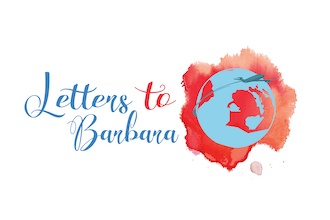Dear Anafi,
You have both the privilege and the misfortune of belonging to Greece. It is a privilege to belong to Greece, Anafi, because, as Seferis once said, “That stone cape in the Mediterranean has no other good than the struggle of its people, the sea, and the sunlight.” Indeed, all these things are priceless. But it’s also a misfortune: you remain detached all year long, and you always depend on the will of the ship owners.
I thought I wouldn’t see you this year, Anafi. Half of the boats never reach your untainted soil: sometimes, it’s due to the weather, but most of the time, it is because of inadequate profit. Your barren land is attractive to artists, writers, and free campers, but it’s totally indifferent to millionaires and ministers. There’s lots of confusion with the government funding, the subsidies, and all these terms that create more problems than the ones they solve. This summer, one of the ferries serving Anafi decided to operate in the Azores. There’s either something wrong here, or I was totally careless in school, and I never realized that the Azores are part of the Cyclades.
You are one more victim of New Capitalism, my dear Anafi: it’s not about the substance anymore; it’s about the presentation. And you are presented as a remote island of no importance, not as a place where people struggle for their right to live. Sure, the official voices of the state say that you are valuable and all, but whenever they have to prove it, they don’t give a damn. The state that loves us is a convenient fairytale: the truth is that every state hates its citizens. After seeing a couple of forgotten places in Greece and abroad, nothing can really change my mind about that fact.
And yet, some people visit you, Anafi, against all the odds. They refuse to give up, they refuse to let the Economy decide about their vacation. They are not countless like the Santorini nomads, but they comprise a very distinctive bunch of people. And embarking on a ferry to Anafi is one of the sweetest journeys.
Honeybees around a cane
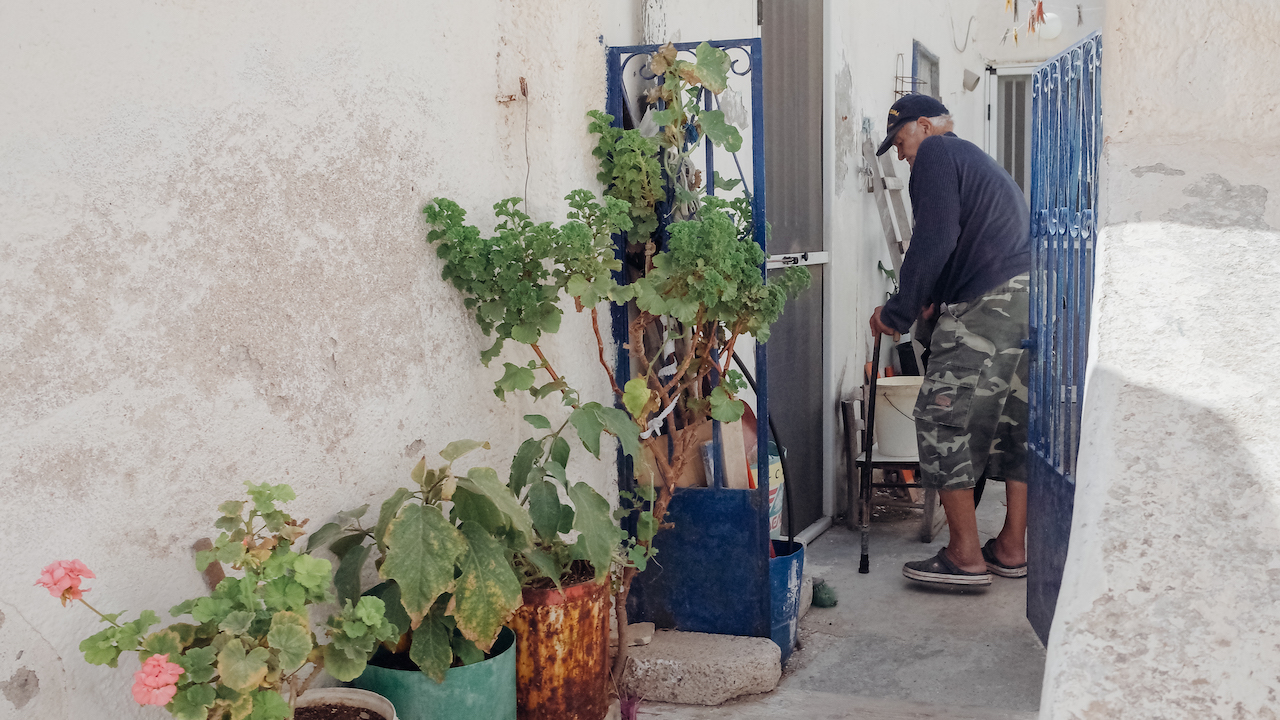
It’s early in the morning, and the light in Anafi is intense. I sit on a bench, and I try to adjust the settings on my Ricoh. There’s a voice somewhere behind me saying a lengthy “Haaaaallooooo.” I turn my head, and I see an older man. He holds a cane in his right hand and walks slowly. We start talking in Greek under the warm sun. His name is Manolis.
“Do you like it here?” he asks.
“Of course,” I reply, “but the most important question is: do you like it here?”
“Ah,” is his initial reaction. I’m a bit bored here. I’d love to go somewhere else.”
“Would you like to come to Germany?”
“No, that’s too far away. I want to go to another island. To see how life in another place feels like.” He then takes a step back. “But I guess I’m too old, I spent 88 years in Anafi.”
“I think you are fine, and I’m pretty sure you’ll live another 88 years.”
“You really think so? I can hardly walk. When I was young, I used to work a lot. And what’s the result? I have problems with my legs. I can’t walk properly. They told me that I should get an operation. But I’m 88 years old. It might not be successful. And then what? I won’t be able to walk at all.”
“Then you’d better not have this operation.”
“That’s what I decided, too,” he says. But you know what?” he continues, “Every day, I let the honeybees bite my legs—lots of bees, several bites. They say it’s good. They say it helps you feel better. I bring them close, and I force them to bite me. Do you also find it good?”
The Nights at Tholos
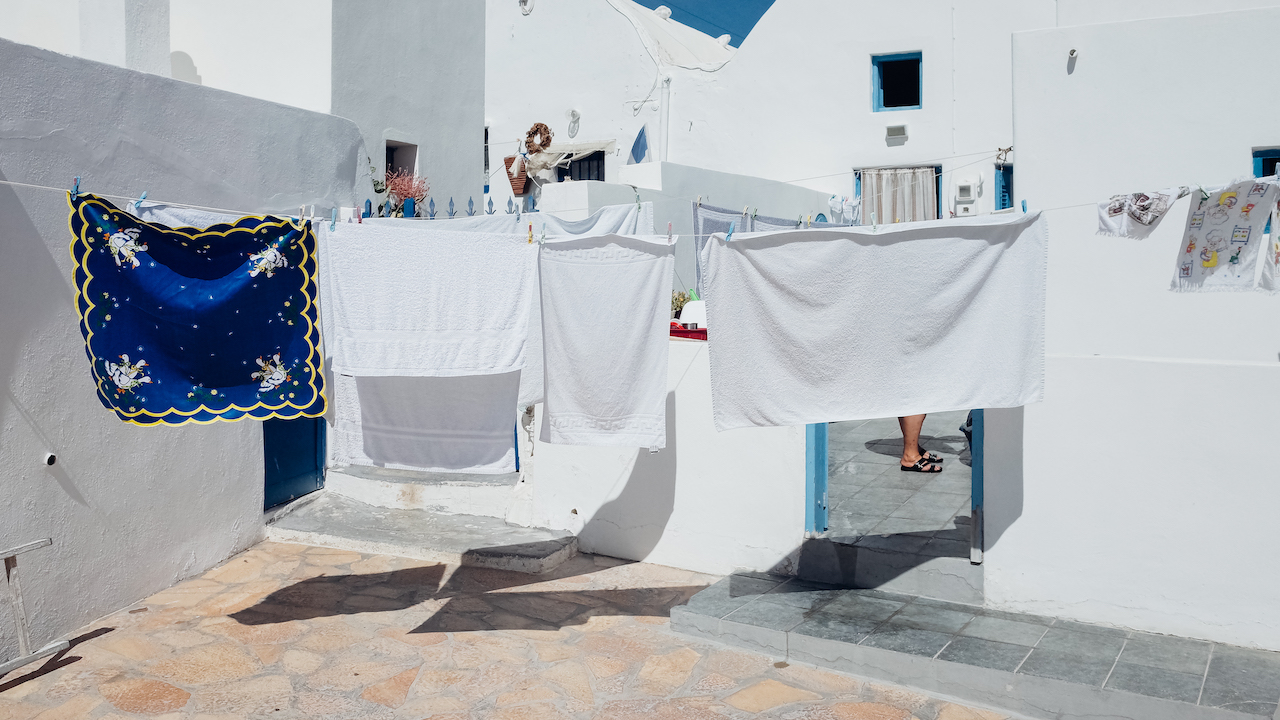
Every single night we eat at Tholos. There’s always that table that we occupy, Barbara and me, on the edge of the little taverna. Yorgos and Yannis have been running Tholos for a couple of years now. The food is always fresh, and the spirit of the owners is high. Long days end at Tholos among food and loads of wine. Anafi appears pitch black from the little veranda. Sometimes the wind is too strong, and the napkins tend to fly. But some evenings, the whole island is calm -and then you can really inhale the sea.
We eat, we drink, and we hear what you have to say, Anafi. The locals are usually gathering later at night, after 10 pm. Sometimes it’s football that keeps them busy, they watch the matches at the nearby Vythos cafe. Other times though, it’s politics. I often think that Greece wouldn’t have any tavernas if there were no politics. It’s a time that the island has to decide about its future, and the talks are always hot. There are even some gatherings of the local council, but even after they end, the talk continues at Tholos.
I won’t betray what I overheard about your future, Anafi. But what I can only tell you is that young people care a lot about the island. They want to find ways to keep the youth on your soil, they don’t want to see the place deserted in a few decades. I’m optimistic about your future, Anafi, and I’m sure that you won’t be a victim of the Santorinisation of the Greek islands.
Meanwhile, Yorgos always brings us an extra quarter of red wine every night. Long dry days at the beach end with long shots of dry red wine. And on the 27th of September, I celebrate the first anniversary of my travel blog in Anafi, at Tholos. Special occasions must be celebrated in special places.
Fog unrolling over Anafi
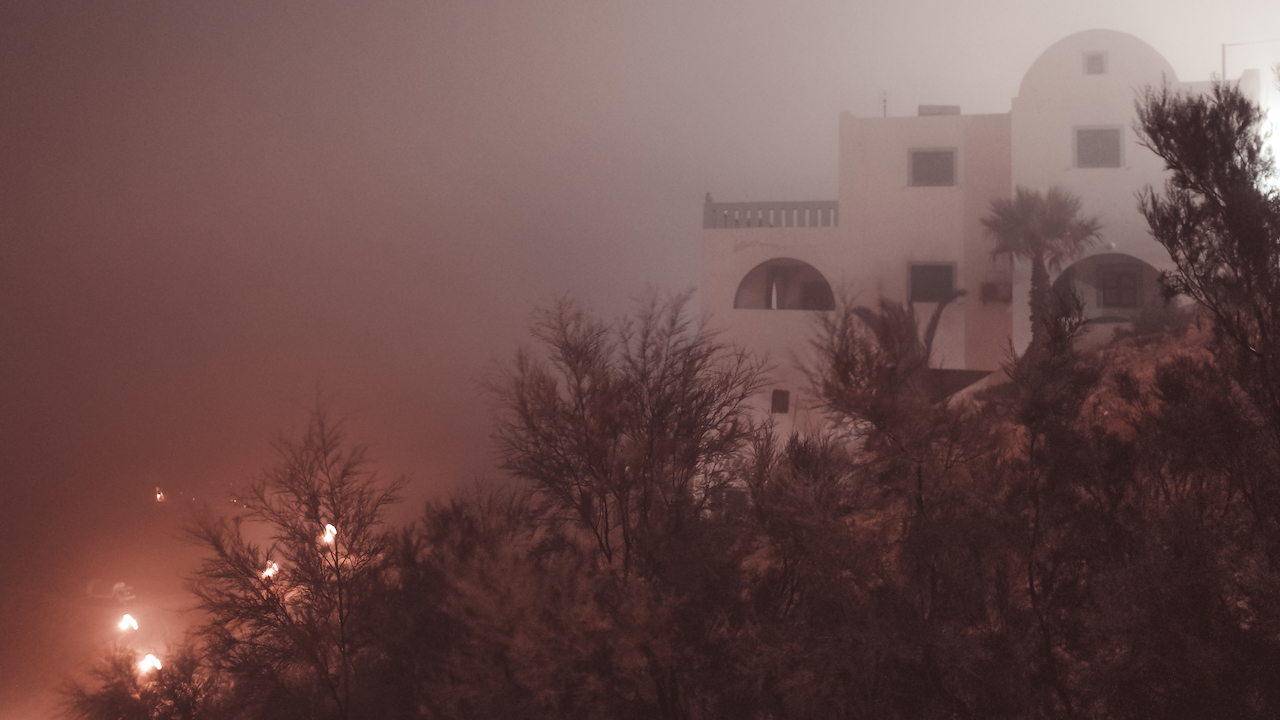
One night, after working for a couple of hours, I step out for a cigarette. But when I open the door, everything is white. Thick fog covers everything, and it moves toward Anafi like an airy wave. The fog is so thick that I can’t even see where the veranda ends. I saunter towards the edge, and I try to guess where the sea is. But I can’t see anything apart from some scattered street lights down below.
Soon, I bring my camera outside and try to get some photos. Then, I decide to take some photos of the Chora. But the fog is significantly less now, so I just shoot a couple of images close to Dream Anafi, where I always stay on the island. Meanwhile, the fog moves quickly, like a curious giant.
When I finally return to the room, the visibility is partly restored. While the view towards the sea is not clear, I can see the lights of some fishing boats here and there. For some odd reason, I think that the street lights that were shining through the fog earlier have moved inside the Aegean. It’s as if they turned into boats, and now they have to guard Anafi.
On the top of Anafi’s Monolith, at the Kalamiotissa Monastery
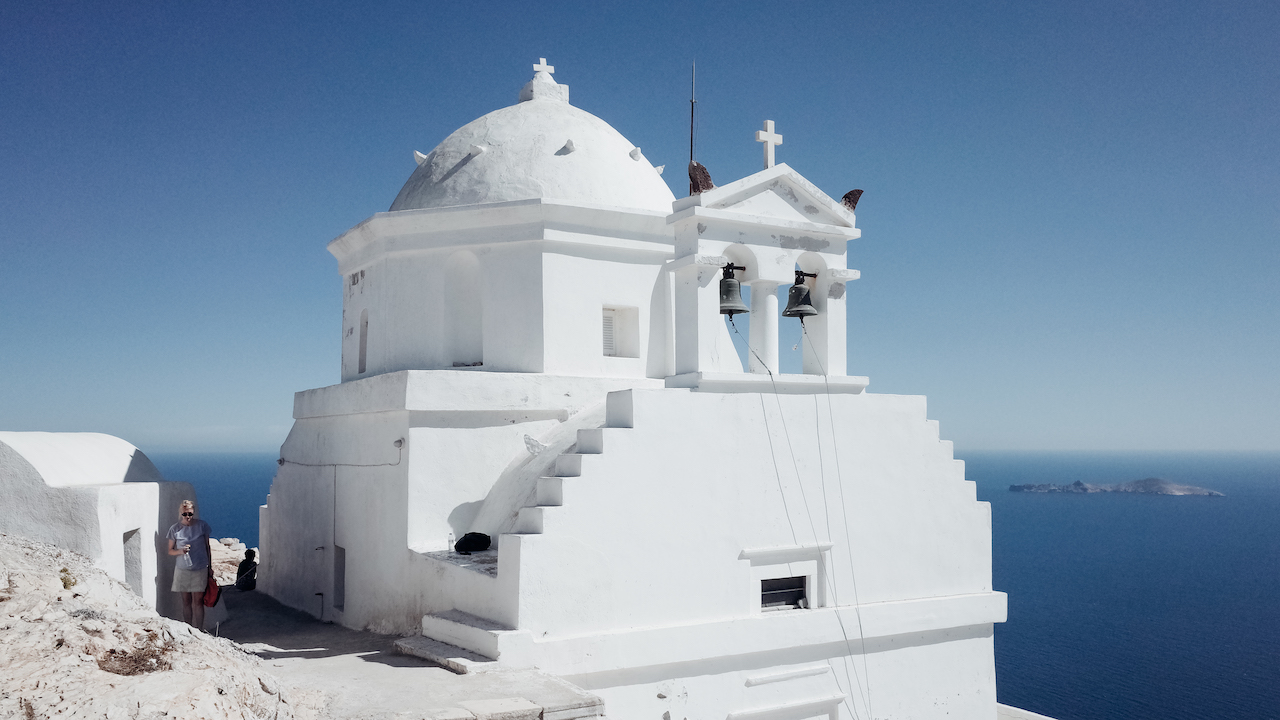
I’m not religious at all, but every year I try to reach the Kalamiotissa Monastery. Located on top of Anafi’s Monolith, which is second in Europe, only after Gibraltar, the small monastery has stood there for centuries. We reach with a car the Lower Monastery, as the locals call it, and from there, it takes approximately one hour and thirty minutes of hiking to the top.
The first part of the path is steep -and actually, there’s no path, just arrow signs pointing towards the direction. I always find this part to be the hardest one, and once again, I wear the wrong shoes. I remember Bruce Chatwin on this first part, and once in a while, I check if Barbara follows me. She wears a scarf around her head, and she hikes at a steady pace. The sun is intense, and everything around us is white. I’m sweating like hell.
The second part of the path is more rewarding, though. It’s less steep but significantly sheerer. It feels as if I’m walking above a perfectly vertical cliff at times. It’s definitely not true, and I’m probably dizzy from the heat. But the views are breathtaking, and the hike feels, somehow, easier. Shortly before reaching the Kalamiotissa Monastery, we see goats running to the top. They climb with ease, and one can only be jealous. A couple of days ago, I asked Katerina, who runs the Dream Anafi, who’s taking care of the goats.
“There’s a guy at the Lower Monastery,” she said. “He sets them free, and he sees them running. I know that he has a pair of binoculars with him. He would observe them from his car all the time. And when he wants them to return, he just presses the horn of his car multiple times. They obey, and they run back.”
This year, it takes one hour and five minutes to reach the monastery of Kalamiotissa. The whitewashed building shines on top of the Monolith. The Chora of Anafi appears like a tiny detail on the other edge of the island. The view is endless, and as an elderly guy said the other day at the bus stop, “It feels like you’re climbing a much bigger mountain.”
Later that night, we ended up at Tholos. Yorgos is there, as always.
“We’re dead tired and hungry tonight. We went to the Monastery of Kalamiotissa today.”
“Early in the morning?”
“No.”
“Late in the afternoon?”
“No.”
“Midday?”
“Yes.”
“Not good,” he says, “not good.”
So long, Anafi
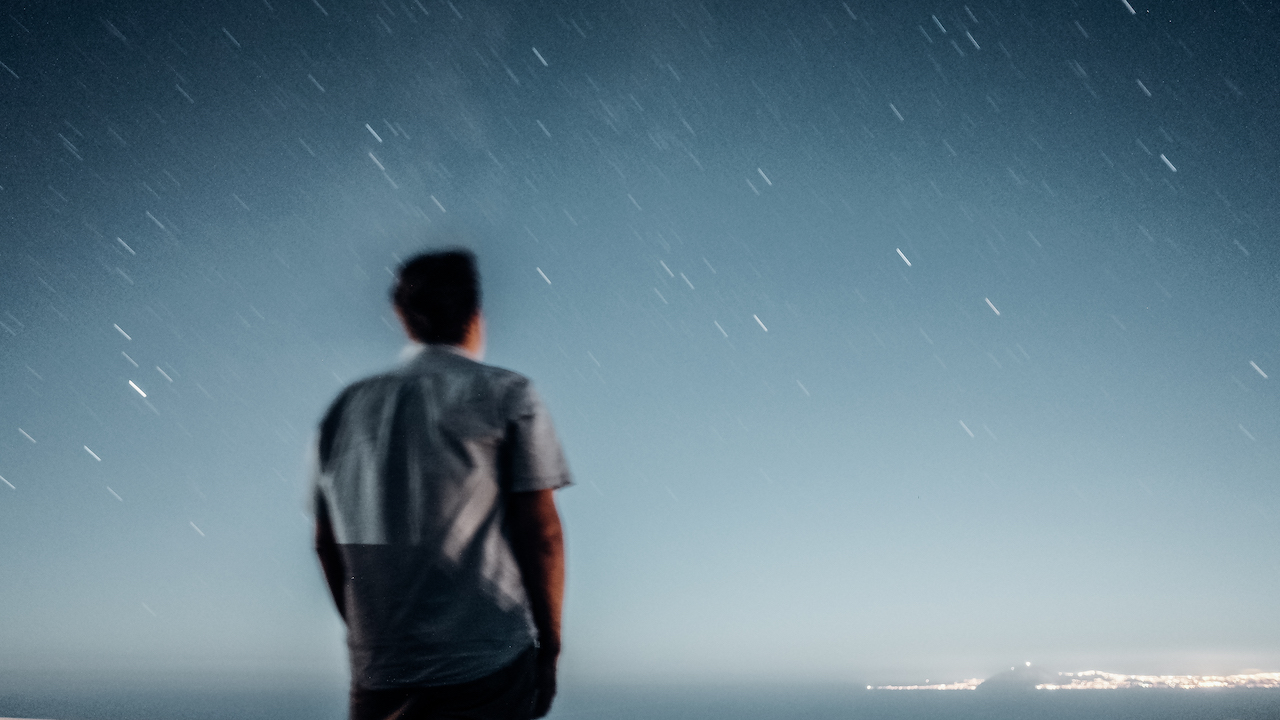
After more than two weeks, it’s time to leave you behind, Anafi. But that’s never easy. It’s a cruel time in the morning when we arrive down at the port, something like 5:30 a.m. I only see darkness and some lights here and there. We say goodbye to Katerina, and then we embark on the ferry.
The sea is calmer today, and the boat departs on time. I can only have a glimpse of your silhouette, Anafi, when the boat is midway to Santorini. I walk to the deck, and I see the orange light of the sunlight washing you. The Monolith appears like a proud detail on the horizon.
It’s chilly on the deck, and I soon go inside again. I find a seat, I close my eyes, and I think of the last few days. I think of the guys at Tholos, of Manolis with the honeybees, of the talks with Katerina, I think of the time with Barbara, and then everything becomes about you, Anafi. And, of course, I think of your struggle, and I remember your beauty. But then, I also think of your untamed beaches and the ferries that refuse to reach you. I can only reflect upon your bright future and why it’s ruined now and then by exogenous factors.
And soon, I realize that you are exactly like our lives, Anafi: you have all the potential to shine, and yet somebody decides to ruin it. All that remains afterward is a struggle, which somehow makes the fight for a better tomorrow even more attractive.
Love always,
George
More about Anafi: Polaroid Diaries, A Divine Island, Things to do in Anafi
Pin it for later
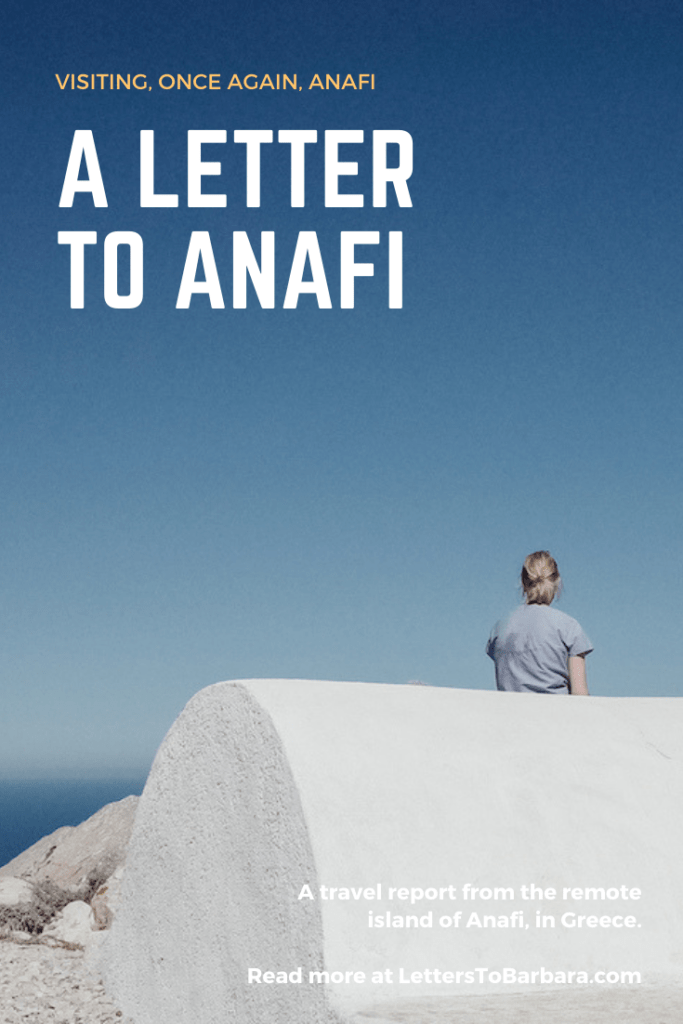
Sharing is caring. Please share this Anafi travelogue with your friends.
Last Updated on April 16, 2024 by George Pavlopoulos
